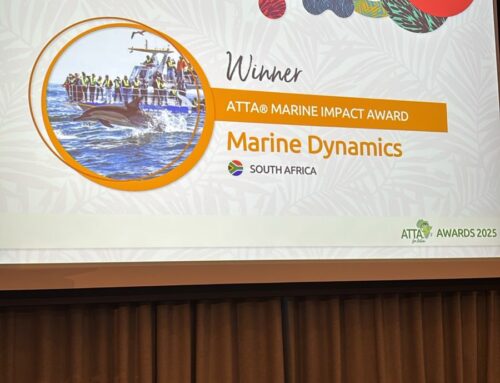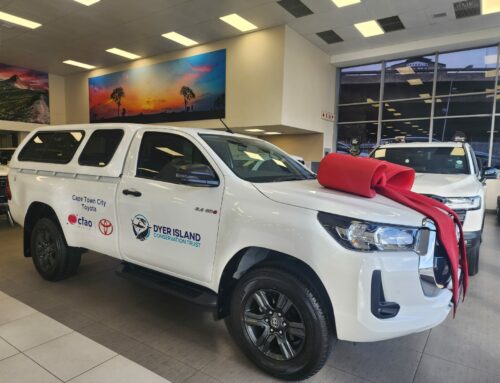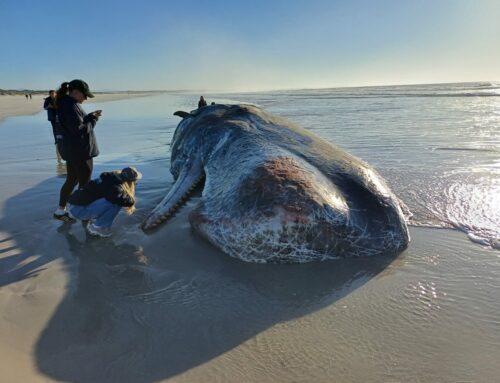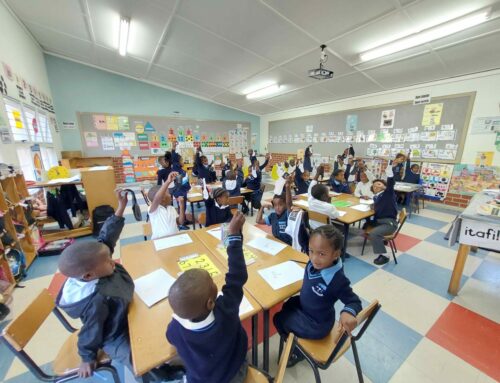On Thursday 10 October 2024, the Marine Dynamics team received a report of a stranded dolphin at the Walker Bay Nature Reserve, just before the iconic Klipgat Caves. The team, consisting of biologists and guides, Amy Webber, Sandra Hörbst, Sonja Fleck and Marine Dynamics Academy scientific intern Erika, drove to the site before descending to the beach where the dolphin could be seen lying along the shore.
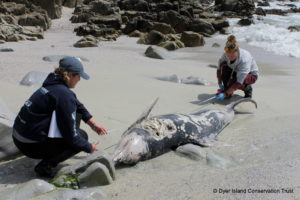
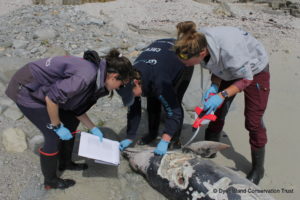
Initial inspection identified the species as a Bottlenose dolphin (Tursiops truncates), measuring at 2.46m in total length. Reaching maximum lengths of 2.5-3m in length, the dolphin could be identified as a mature male. It was clear the individual had been deceased for a longer period of time, with signs of potential predation behind the left pectoral fin likely occurring after the decease event and degradation of the surface skin. Bottlenose dolphins are one of 3 dolphin species that can be found along the Overstrand coast, alongside Common dolphins and the endangered Indian Ocean Humpback dolphin. Bottlenose dolphins are one of the most well-known species globally, gaining special recognition for their social mannerisms and intelligence, having the longest social memory of nonhuman mammals.
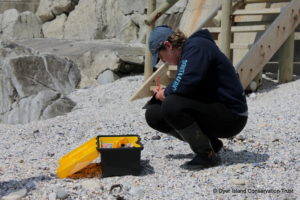
Despite the incoming tide, the team successfully took the necessary measurements and photographs. A blubber sample was taken from the animal, allowing for potential DNA or isoptic studies that identify dietary variants. Inspection of the mouth found 24 teeth on the right upper side and 22 long the right lower side, with 3 missing from the bottom jaw. In total, bottlenose dolphins typically have between 72-104 teeth, with just one set lasting them their lifetime. Their conical shape and interlocking placement make them suitable for holding onto prey items, typically consisting of fish and cephalopod species.
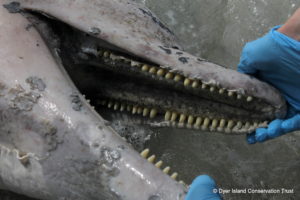
Despite these charismatic species being a household favourite, threats to their survival are not few. The removal of food sources, habitat degradation and entanglement in fishing gear are some of the few anthropogenic impacts that result in unnecessary causalities. Stranding opportunities are vital to improving our understanding of cetacean ecology and the threats that face them. For any stranding events, please contact the Dyer Island Conservation Trust and Marine Dynamics team.

